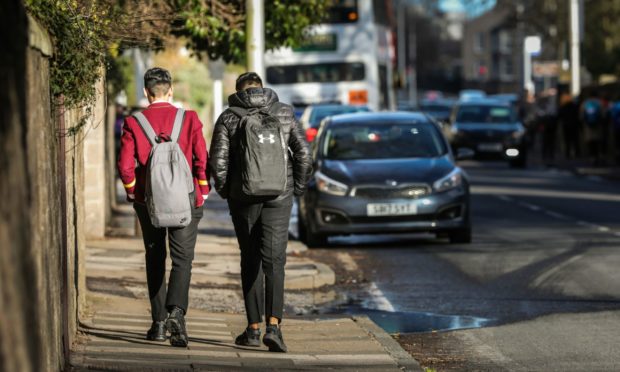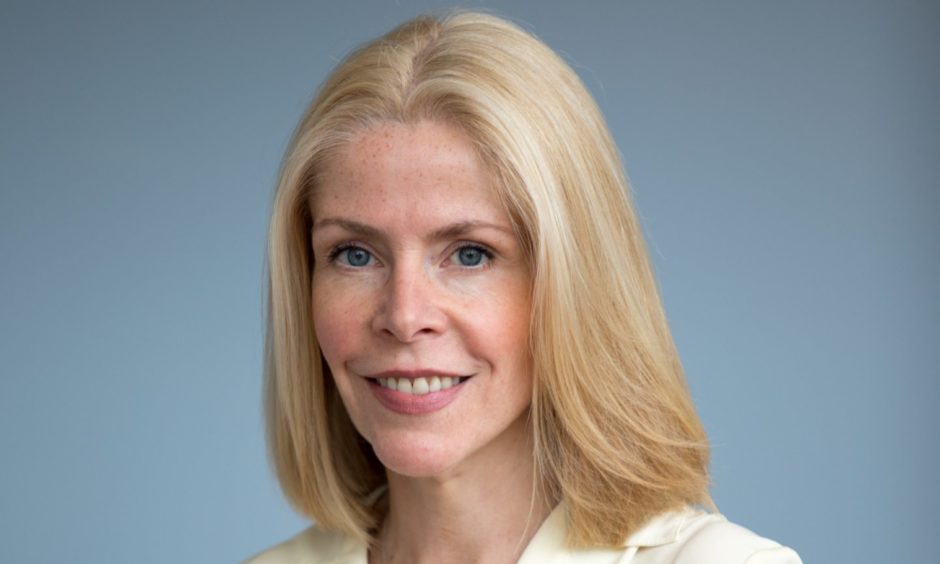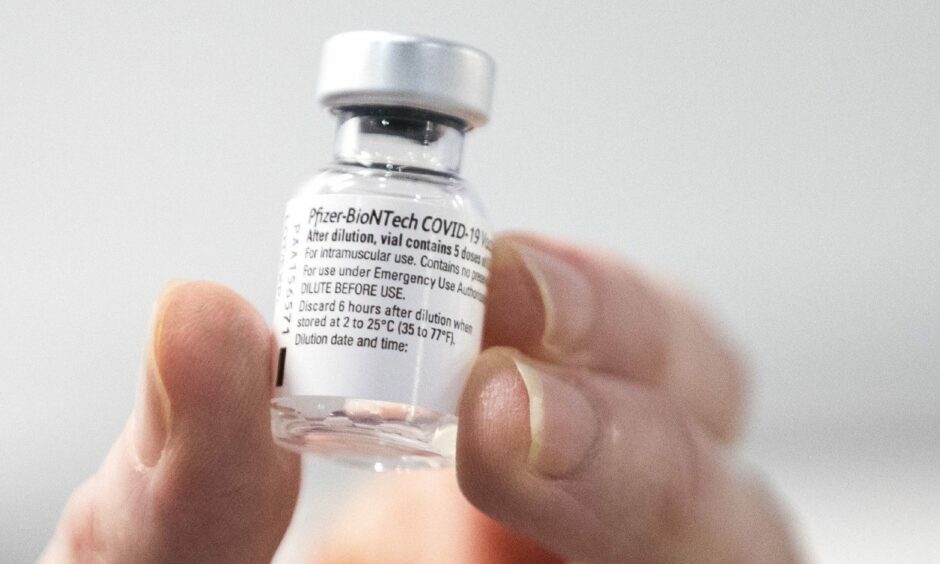The UK’s decision on vaccinating children is an “outlier”, according to one of Scotland’s leading public health experts.
Professor Linda Bauld said “pressure would continue to mount” on governments to extend vaccination to all children aged between 12 and 17.
Around 4,000 teens with certain health conditions across Scotland are expected to be jabbed.
The current position of the Joint Committee on Vaccination and Immunisation (JCVI) is not to offer routine vaccination to all children, based on the current evidence.
However, First Minister Nicola Sturgeon has said she does not want to rule out giving the coronavirus vaccine to children aged 12 to 17.
‘Outlier’
Speaking on the BBC’s Good Morning Scotland programme, Prof Bauld described the UK’s decision as “controversial”.
She added: “We look like an outlier across a number of high-income countries.
“I think the JCVI’s rationale for not offering it to all 12-17 year-olds are that they’re seeing some signals from the data from Israel and elsewhere that there might be some tiny proportion of a risk of an adverse event from their data.
“But we haven’t seen good evidence of that in the public domain yet.
“I would imagine the pressure would continue to mount on them to extend it.”
Prof Bauld added that experts are questioning why other parts of the world – including the US, Canada and other parts of Europe – have chosen to vaccinate all teens but the UK has not followed suit.
She added this became particularly important as the country looks ahead to schools and universities going back as some students are 17 when they start university in Scotland.
She added: “What will probably happen is we’ll see increasingly that infections are in the younger age groups – they already are – but that will become more of a concern when schools are back.”
‘Very mild’ disease
The JCVI is advising that children at increased risk of serious Covid-19 disease are offered the Pfizer vaccine.
That includes children aged 12 to 15 with severe neurodisabilities, Down’s syndrome, immunosuppression and multiple or severe learning disabilities.
Professor Anthony Harnden, deputy chair of the JCVI, said that “previously well children” who get Covid-19 are “likely to have a very mild form of the disease” and therefore the “health benefits of vaccinating them are small”.
He added: “The benefits of reducing transmission to the wider population from children are also highly uncertain, especially as vaccine uptake is very high in older people who are at highest risk from serious Covid-19 infection.
“We will keep this advice under review as more safety and effectiveness information becomes available.”
Parents of children suffering from long Covid – including in the north-east – say youngsters have been left with debilitating daily symptoms since contracting the virus.
Scotland’s chief medical officer Dr Gregor Smith has written to the JCVI asking that the benefit of vaccinating all 12-17-year-olds is kept under “close and ongoing review”.
A Scottish Government spokeswoman said: “In line with the most recent advice, children and young people aged 12-15 years old who have particular underlying conditions that make them clinically extremely vulnerable will be offered the vaccine.
“Over 12’s living with people who are immunosuppressed will be offered the vaccine and those who meet the existing eligibility criteria for 16-17 year olds.
“As we have done throughout the pandemic, we will continue to follow the expert advice from the JCVI, and work is underway to deliver this in the forthcoming weeks.”


